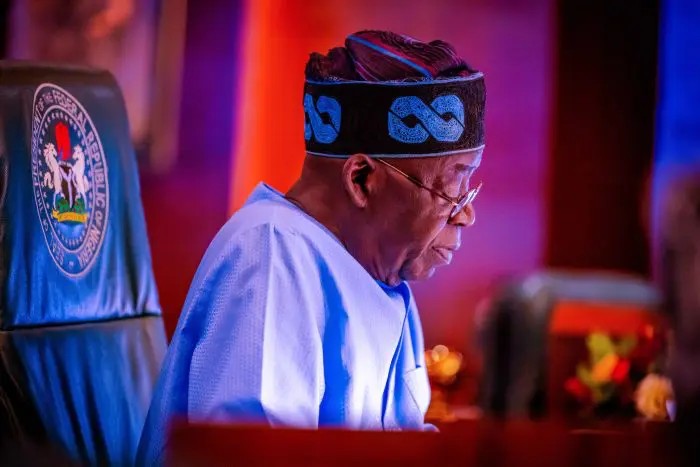Tinubu overhauls NNPCL leadership, sparks industry debate

…Experts, engineers, gender advocates react to sweeping changes
BY MOTOLANI OSENI
President Bola Tinubu’s sweeping reorganisation of the Nigerian National Petroleum Company Limited (NNPCL) has triggered a wave of reactions across the oil and gas sector, with experts, professional bodies, and gender advocates weighing in on the implications of the shake-up.
While the Nigerian Society of Engineers (NSE) has praised the appointments as a strategic step towards revitalising the industry, concerns have emerged over gender imbalance, policy direction, and the broader impact on Nigeria’s energy security.
The NSE commended Tinubu’s decision to appoint Bashir Bayo Ojulari as Group Chief Executive Officer and Ahmadu Musa Kida as Non-Executive Chairman, alongside other board members, citing their vast experience in engineering, technical management, and leadership.
RAED ALSO: Delta marks 100 years with renovated flight museum
NSE President Margaret Oguntala described the appointments as “putting the right peg in the right hole,” stating that they align with global best practices in energy governance and will drive efficiency, transparency, and innovation within NNPCL. She further noted that the decision underscores the administration’s commitment to strengthening Nigeria’s energy security and economic growth.
However, the removal of Mele Kyari as Group Chief Executive Officer and the reconstitution of the NNPCL board have sparked mixed reactions. Oil and gas expert Olabode Sowunmi described the changes as a calculated effort to inject new ideas and revitalise the industry.
He argued that NNPCL, as a limited liability company with the Federal Government as its major shareholder, requires dynamic leadership to navigate emerging challenges.
Economist Lawrence Nze, on the other hand, criticised some of Kyari’s policies, particularly the Naira-for-crude initiative, which he claimed failed to significantly lower petroleum prices.
He expressed concerns that vested interests might still be sabotaging efforts to end fuel importation and stabilise the energy sector.
Other analysts pointed out that the overhaul is in line with the Petroleum Industry Act (PIA 2021), which grants the President the power to dissolve both the NNPCL board and its leadership. Economic expert Yushau Aliyu noted that the shake-up is timely, particularly with plans for an Initial Public Offer (IPO) underway, which could potentially list NNPCL on the stock market.
Oil and gas analyst Dr Sand Mba-Kalu highlighted the need for stability and predictability in the sector to attract sustainable investment and drive long-term transformation.
Beyond industry concerns, Tinubu’s appointments have reignited debates over gender representation in Nigeria’s governance. Of the 11-member NNPCL board, only one woman—Lydia Jafiya, an institutional representative from the Ministry of Finance—was appointed, drawing criticism from gender advocates.
Mabel Adinya, founder of the Adinya Arise Foundation, described the appointments as a setback for gender inclusivity, arguing that the exclusion of women from key leadership positions contradicts Nigeria’s National Gender Policy, which advocates for at least 35 per cent female representation in government appointments.
Adinya warned that a male-dominated board is less likely to prioritise economic policies that address the disproportionate burden on women and vulnerable groups.
She emphasised that research has shown that diverse leadership improves governance, innovation, and economic performance.
Oil and gas analyst Bala Zakka also criticised the gender imbalance, stating that Nigeria has a pool of competent female professionals who could have been appointed to the board.
He called for subsequent appointments to reflect greater diversity, urging policymakers to ensure fairness and inclusion in future selections.
As the dust settles, stakeholders are closely watching how the new leadership will steer NNPCL through its pressing challenges. With expectations high, the focus remains on whether the reforms will foster investment, enhance energy security, and bring lasting solutions to Nigeria’s longstanding oil and gas sector issues.










